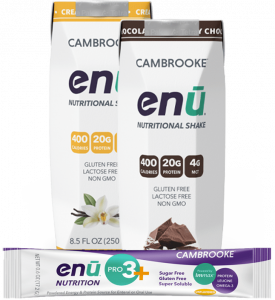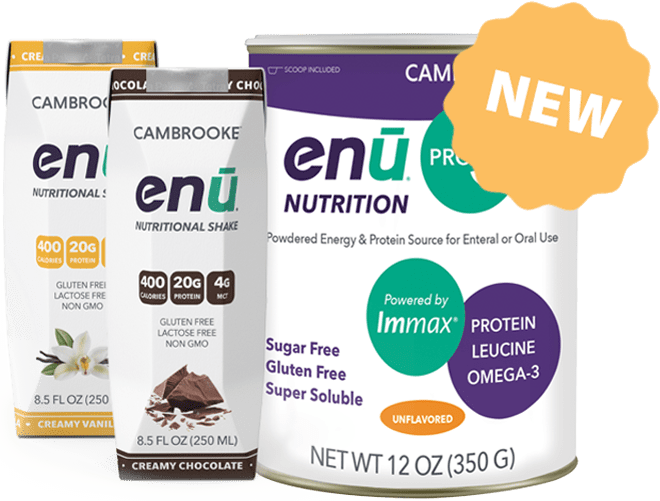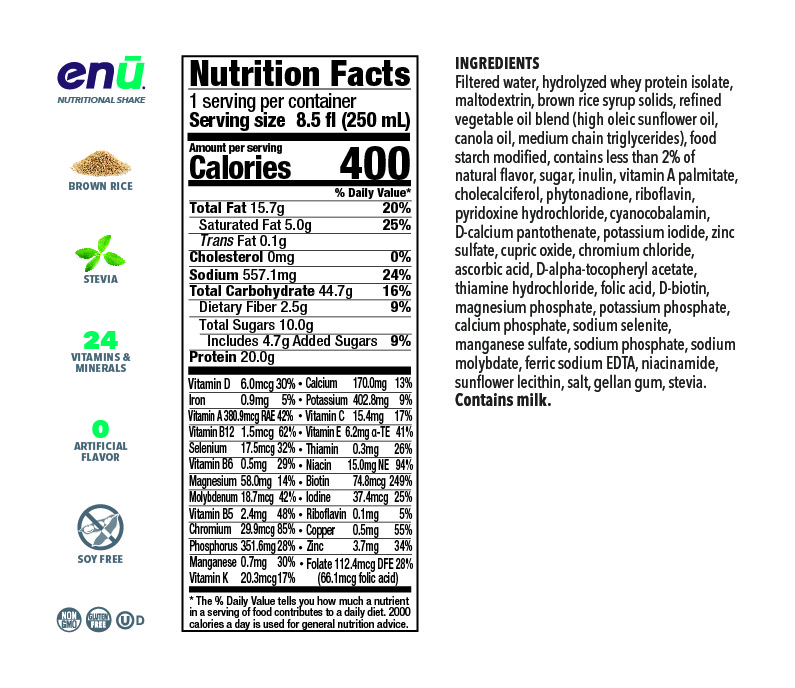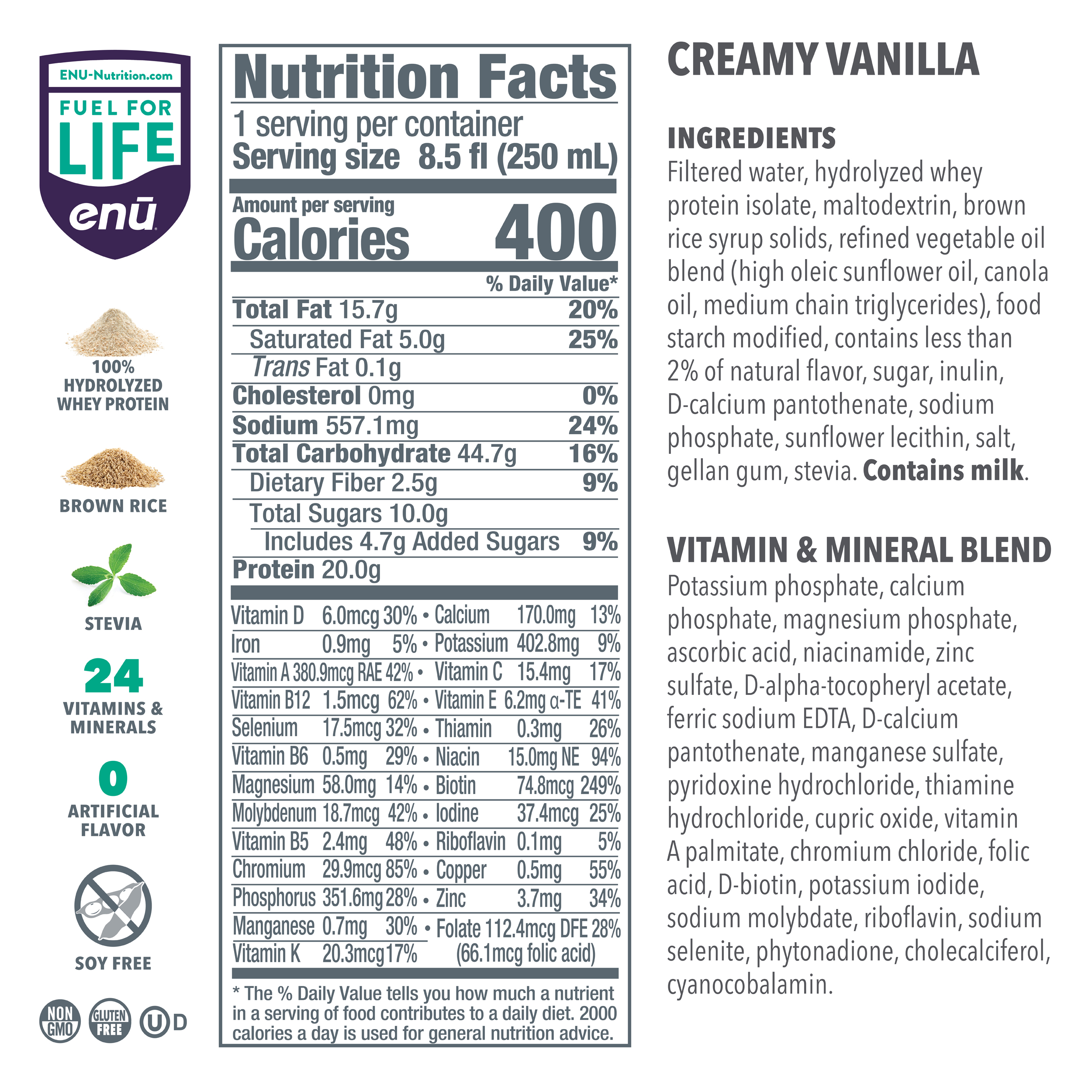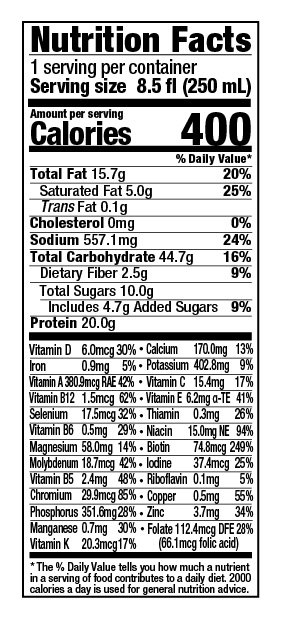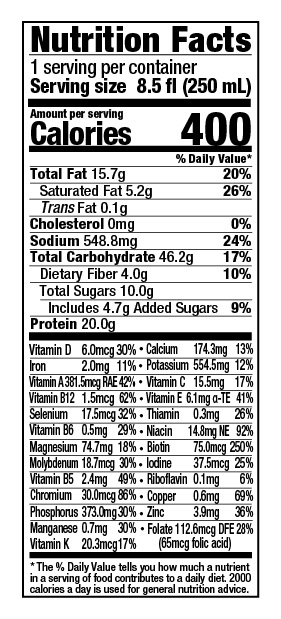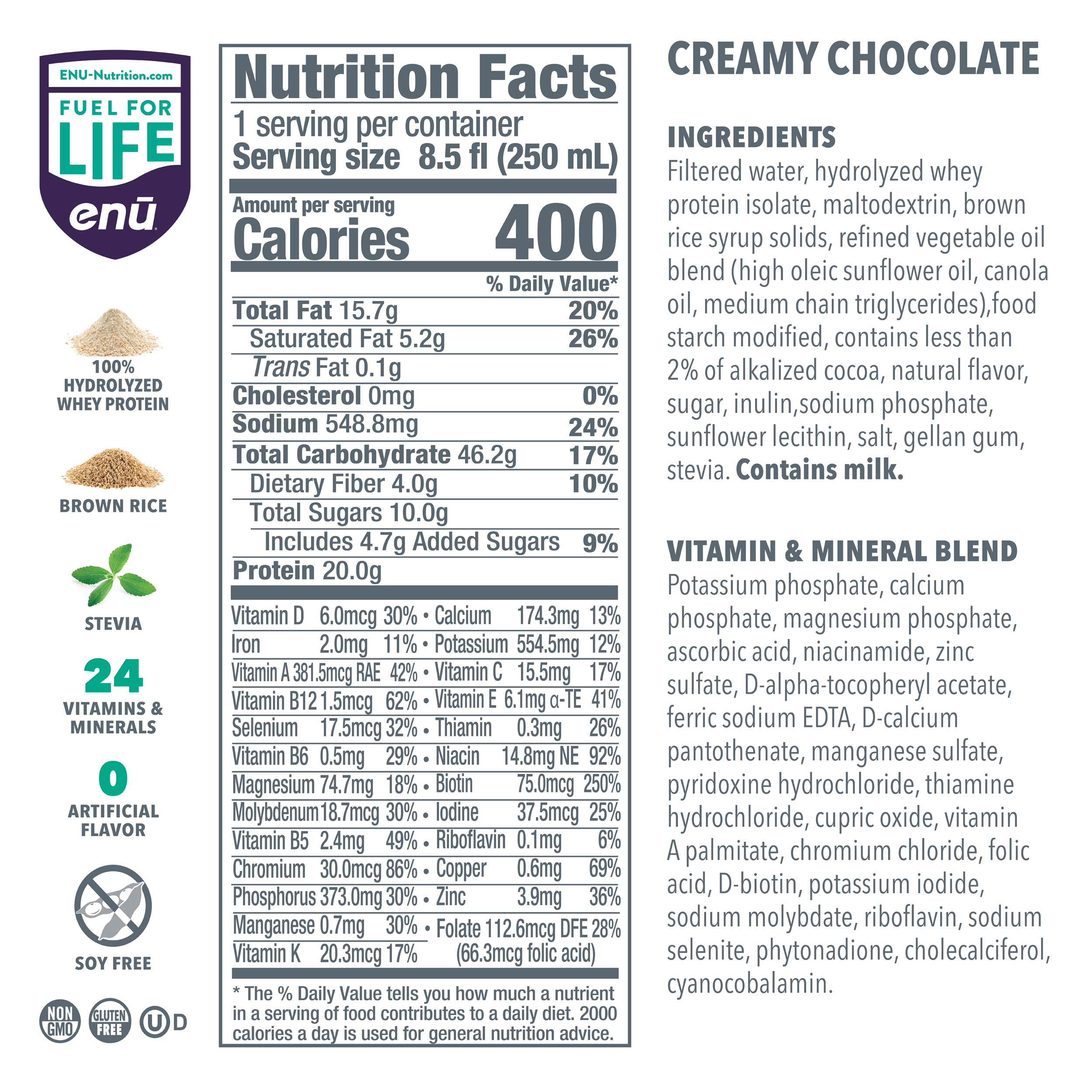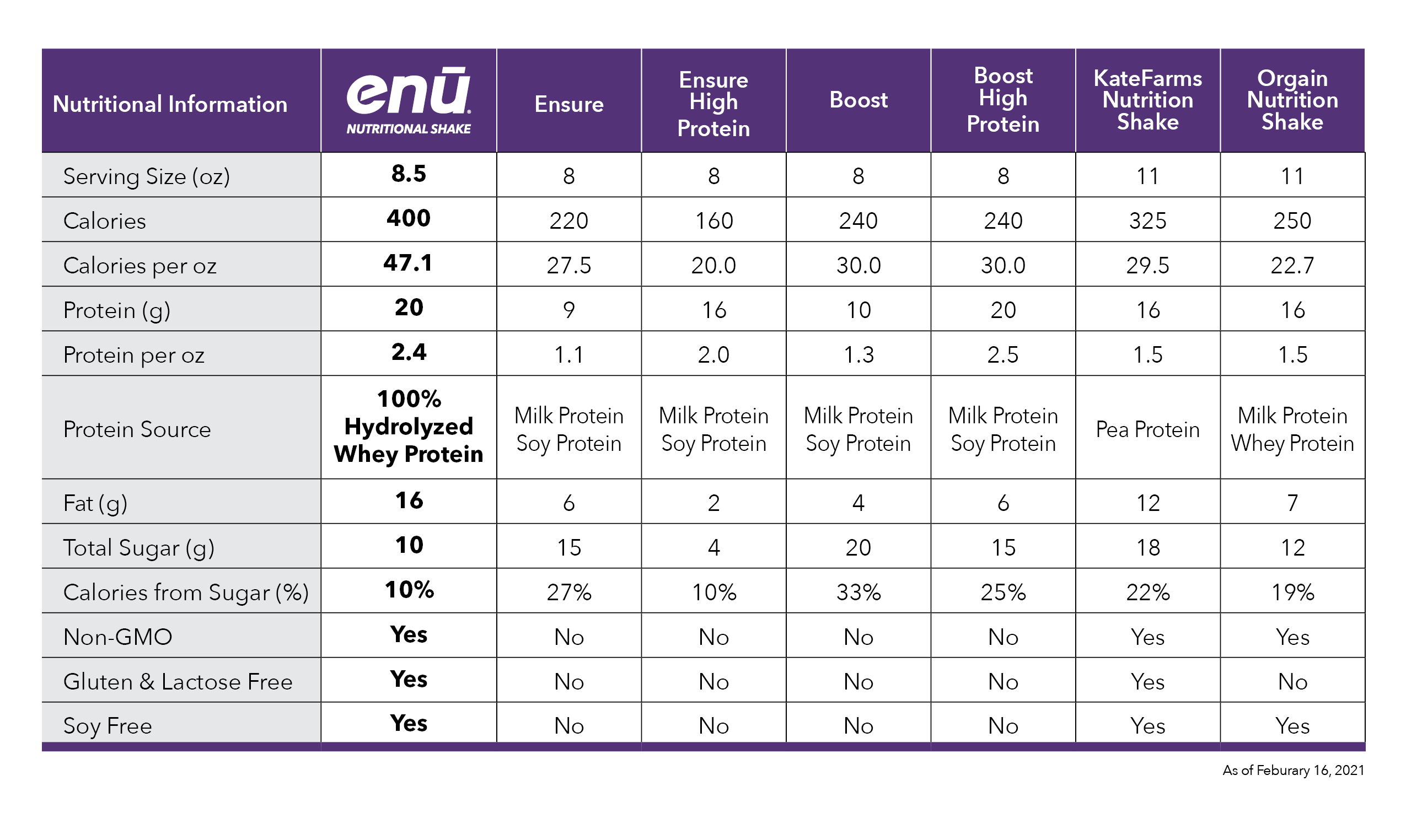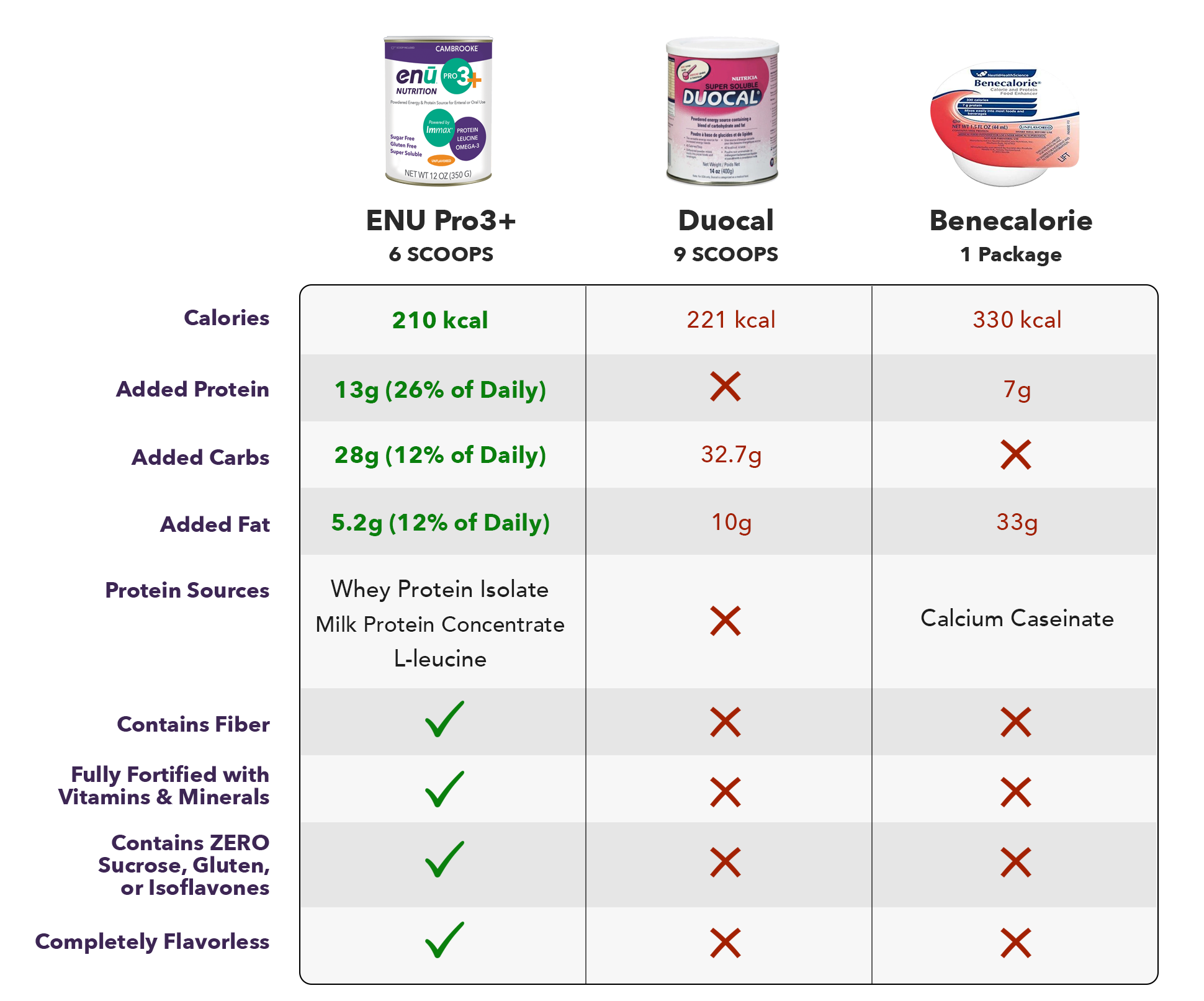
Get a FREE
ENU Intro Pack*
*Just Pay $2.00 Shipping

Why Can’t Cystic Fibrosis Patients Gain Weight?
Patients with cystic fibrosis struggle with many aspects of their health, from simply breathing to getting enough nutrients to thrive. Many of those with this illness lose significant amounts of weight quickly, leading to a need for medical nutrition support and the intervention of doctors to gain that weight back, though this process takes time and effort. There are several good reasons why cystic fibrosis patients can’t seem to gain weight, reasons which stem from the wide-reaching impact of cystic fibrosis across some of the most vital systems in the body. To find out more about how and why this problem affects cystic fibrosis patients so severely, keep reading as the people from ENU explain.
The Effects of Cystic Fibrosis
Because cystic fibrosis is a genetic condition passed down from parent to child, it’s impossible to truly prevent or cure this illness. It occurs because the cystic fibrosis transmembrane conductance regulator (CFTR) gene has a mutation, which affects how the CRTR protein functions. The result is that this protein fails to draw water to the cell – which it normally does by moving chloride from inside the cell to outside its membrane – and so the mucus around the cell thickens and becomes sticky.
In the airways, this viscous mucus can make it significantly more difficult to breathe, leading to shortness of breath in those with CF and requiring the use of extra energy to carry out this normally effortless process. The mucus also traps bacteria and other foreign bodies, which makes infections much more likely in those with this condition. However, despite these serious respiratory symptoms, cystic fibrosis arguably affects the bowels even more severely than it does the lungs.
The biggest cause of digestive problems in those with cystic fibrosis is the pancreas; just as with the lungs, thick mucus in the pancreas causes blockages at key points, which effectively prevents the release of the digestive enzymes that usually finish disintegrating food. Though many people think the stomach is the main organ involved in breaking down food, the pancreas is also involved in that process; once the pulpy remains of the food you eat leave the stomach and move into the intestines, the pancreas typically releases an antacid that neutralizes the stomach acid along with enzymes that complete digestion, rendering the food into small enough bits that the intestines can absorb the nutrients they contain.
Without these enzymes, most of the food that a cystic fibrosis patient eats simply passes right through the bowels without being fully digested, so those nutrients can’t actually be used. This phenomenon is referred to as malabsorption, and it affects fats most extensively, followed by protein. And because several important vitamins – vitamins A, D, E, and K – can only be absorbed if they have first been dissolved in fat, the lack of fat absorption often leads to vitamin deficiencies in CF patients as well.
Problems with Gaining Weight with Cystic Fibrosis
Between the malabsorption of nutrients and calories and the increased energy expenditure that comes with cystic fibrosis, patients with this illness frequently lose weight; if you think of it as an equation in which you simply take the number of calories you consume and subtract what your body uses, those with cystic fibrosis too often end up in the negative. To gain weight, someone with CF must turn that result to a positive, usually by increasing the amount of calories consumed; however, that is often easier said than done.
Because so much of what people with cystic fibrosis eat goes unused by the body, they must increase their consumption by even greater amounts; a good rule of thumb is that a person with CF has energy needs that are up to 50% greater than those of a healthy person, so adjustments to diet need to take that into consideration. One pound of body fat is worth about 3,500 calories, so a healthy person has to add about 500 calories to their diet per day to gain one pound per week; someone with cystic fibrosis might have to add 750 calories to their day to gain that same amount.
It may not seem like all that much, but 750 calories is a lot to a person with cystic fibrosis – not because of the amount being added, but because of the amount they already have to eat. A man with CF must generally eat about 3,000 calories just to stay at a healthy weight (or 2,500 calories for a woman); adding an extra 750 calories on top of that can be tough.
To combat this difficulty, those with cystic fibrosis are encouraged to eat as much as they can throughout the day, often in the form of small, frequent meals that add up to their total daily calorie requirements. Meal replacement shakes like those from ENU can help with this; a single ENU shake contains 20 grams of protein and 13 grams of heart-healthy fats, making it a helpful supplement for those with cystic fibrosis and many other health challenges, too. Plus, each shake has 24 key vitamins and minerals, including those important to someone with CF, such as the four fat-soluble vitamins mentioned above.
Get Help Gaining Weight with Nutritional Shakes from ENU
If you or someone you love has cystic fibrosis, know that the people at ENU have your back. Our products are carefully formulated to provide convenient, wholesome nutrition to help address a wide variety of medical needs, including those related to cystic fibrosis. If you would like to learn more about ENU’s protein shakes for weight gain and how they can help you gain weight with cystic fibrosis or another serious illness, visit us online or call (855) 266-6733 today.

